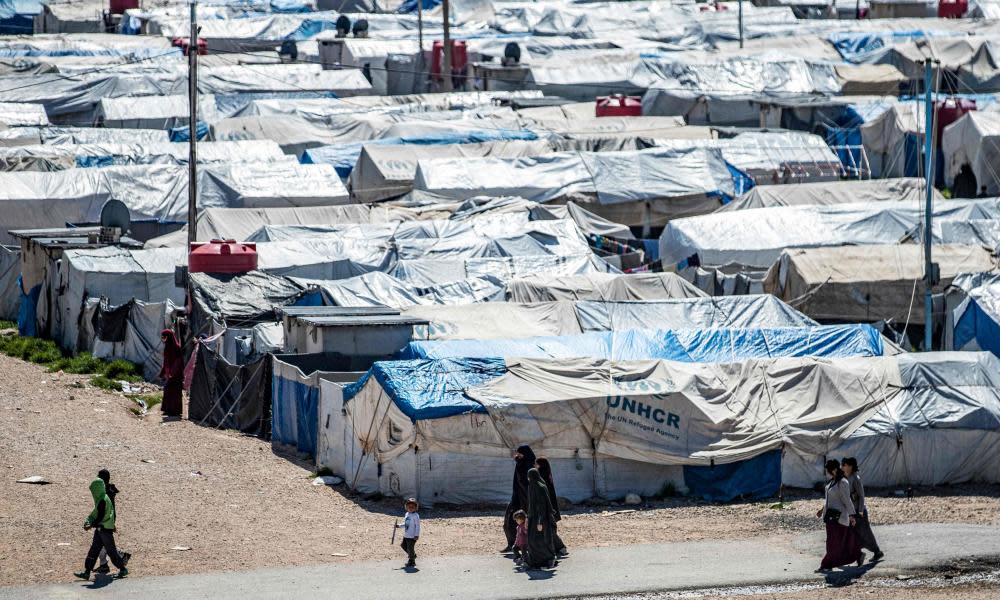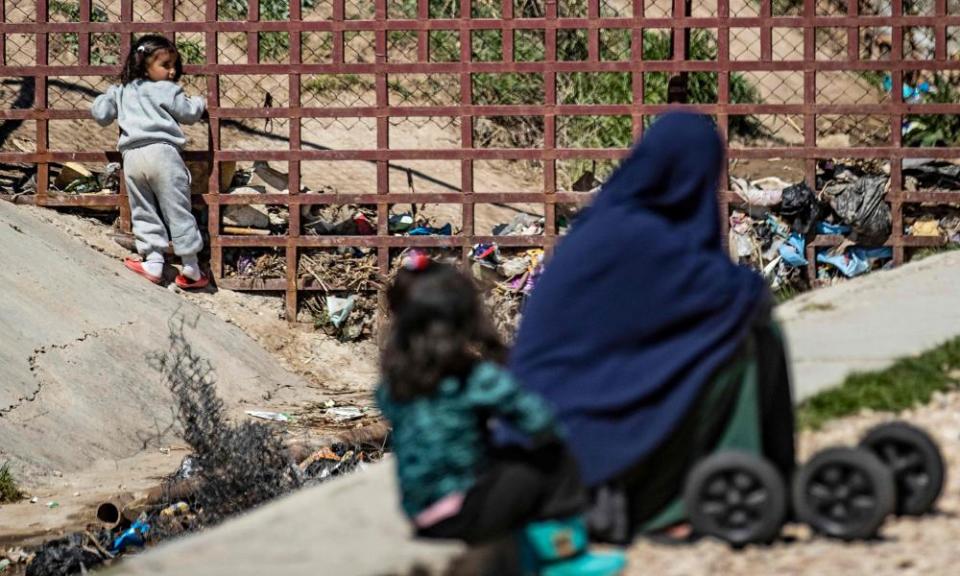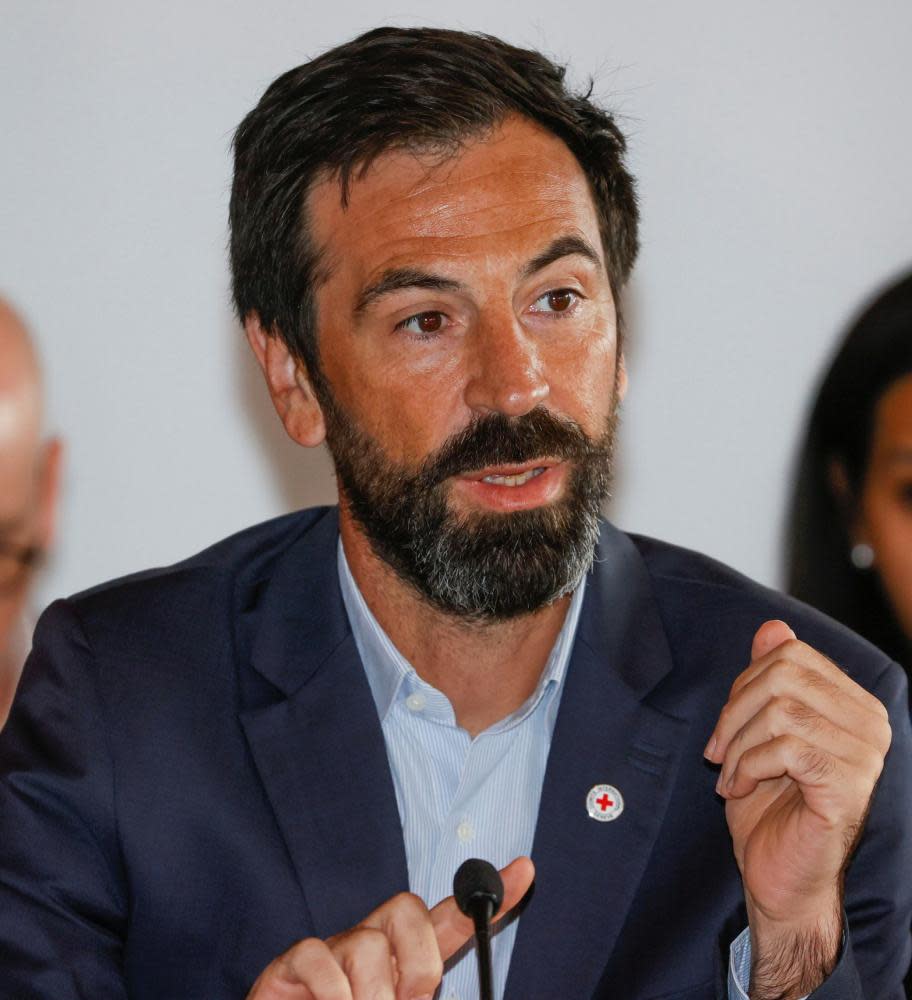‘Dire situation’: fresh call for Australia to save women and children in Syrian camp

The Australian government is facing fresh calls to repatriate women and children from camps in north-east Syria, with top Red Cross officials warning time is running out “to prevent further distress and suffering”.
Fabrizio Carboni, a regional director of the International Committee of the Red Cross (ICRC), described the situation as “one of the most complex child protection crises today”.
Carboni said tens of thousands of children from Syria, Iraq and dozens of other countries were “stranded in camps in appalling conditions no child should experience”. Children, he said, “must be treated first and foremost as victims”.
The stark comments have sparked fresh calls in Australia for the Morrison government to repatriate an estimated 60 Australian women and children who remain in Syria’s al-Roj camp – a tally that includes about 40 children.

Those detained at the camp include family members of men who travelled to Syria and Iraq to fight for Islamic State. Supporters of the women and children say their individual stories vary but many were tricked into going there or were trafficking victims.
Guardian Australia revealed last month an 11-year-old Australian girl had collapsed due to suspected malnutrition in al-Roj camp and had required help from ambulance medics.
The Greens senator Janet Rice said on Thursday about 40 children were “in a desperate and dire situation, with their lives put at significant and unnecessary risk because the Morrison government refuses to act”.
“The Australian government must heed the ICRC’s message and should be doing whatever is in its power to bring these Australians home – just like Canada, France, Germany, Denmark, Finland and the UK have all done for their citizens,” she said.
The Australian government has said it “remains concerned” about the conditions in the camps in north-east Syria but maintains it will only consider repatriations on a case-by-case basis.
The government has also raised concerns about putting officials at risk during repatriation operations and says it is focused on the “protection of Australians and the Australian community”.
But Rice said the foreign minister, Marise Payne, should contact the US to discuss its offer to extract and repatriate Australian women and children stuck in Syria, “rather than rejecting it out of hand without due consideration”.
“The Australian government knows that it is possible to repatriate people from these camps without putting Australian lives at risk, but are making a cruel political choice not to act,” Rice said.
“We cannot be a nation without compassion. We cannot leave children to die.”
David Tuck, the ICRC’s head of mission in Australia, told Guardian Australia on Thursday the organisation “calls on all governments – including Australia – with citizens in these camps to repatriate them”.
Tuck said the ICRC was “willing to offer guidance on this matter” and encouraged countries to share “good practices”.
“Many western states have shown that repatriation, while not easy, is possible,” Tuck said.
“It is vital that we remember that these women and children are individuals, like any one of us, and that the children in particular are vulnerable, and victims.”
The ICRC seeks to guard its political independence, so Tuck and Carboni did not single out any particular government in their comments.

But Carboni urged states to act on what he described as a “mammoth and complex task”, saying the challenges “can’t be used as an excuse for inaction”.
“The window of opportunity to act, to prevent further distress and suffering is there, but it is narrowing,” Carboni, the ICRC’s near and Middle East regional director, said in a media briefing.
“The moment for states to act humanely and responsibly – to remove their citizens from such conditions – is now. The needs are immense and the cost of inaction is high, for everybody.”
Carboni – who visited al-Hol camp in March and reported “a pervasive sense of hopelessness” among people “left in limbo” – pointed to positive examples of repatriations.
“There are states that have brought mothers and children home, keeping families together as international law requires. There are states who are making efforts to prosecute and/or reintegrate people and follow-up humanely.”
Carboni said it was important not to overlook the situation of adults: “Nobody is beyond the law and everybody has a right to due legal process and humane treatment.”
Payne told the latest round of Senate estimates the government was “talking to our international partners” but had been “extremely clear – absolutely crystal clear – in consistently warning Australians that supporting or joining terrorist groups in Syria or elsewhere put lives at risk – their own and others”.

 Yahoo News
Yahoo News 
